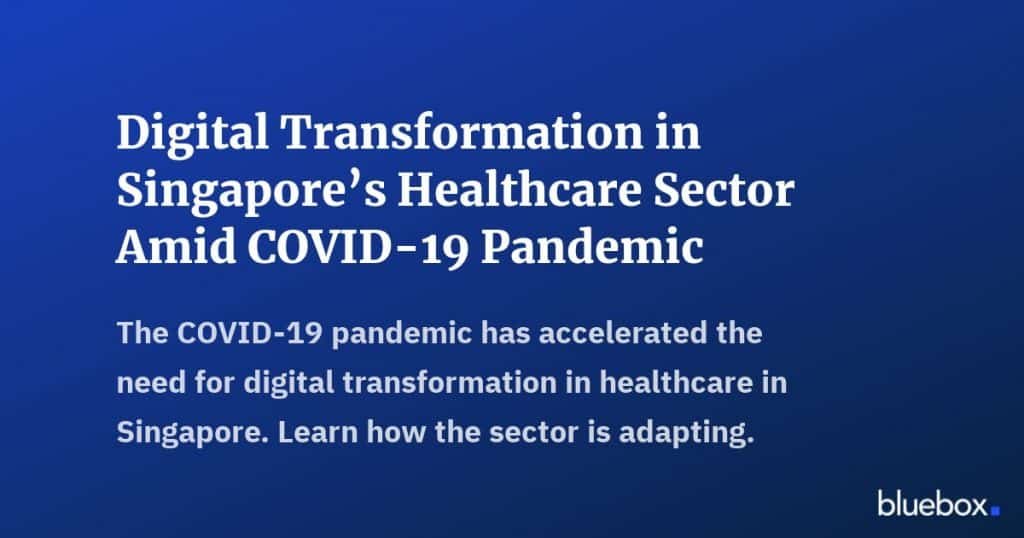The COVID-19 pandemic has brought unprecedented challenges to Singapore’s healthcare sector. In response, the industry has accelerated its adoption of digital technologies to improve patient care, streamline processes, and enable remote consultations. This article analyzes the role of digital transformation in Singapore’s healthcare sector during the crisis and explores the long-term implications of these changes on the future of healthcare in the city-state.
Impact of COVID-19 on Singapore’s Healthcare Sector
The pandemic has put immense pressure on healthcare systems worldwide, and Singapore is no exception. Key challenges include:
- Overburdened healthcare facilities
- Limited face-to-face consultations due to social distancing measures
- Increased demand for remote healthcare services
To address these challenges, Singapore’s healthcare sector has turned to digital transformation, harnessing technology to enhance patient care and optimize processes.
Adoption of Key Technologies and Digital Solutions
During the pandemic, Singapore’s healthcare sector has rapidly adopted several digital solutions, including:
- Telemedicine platforms for remote consultations
- Artificial Intelligence (AI) to support decision-making and diagnostics
- Internet of Things (IoT) devices for remote patient monitoring
- Electronic medical records (EMRs) to streamline data management
These technologies have played a crucial role in maintaining access to healthcare services while reducing the risk of virus transmission.
Improved Patient Care and Streamlined Processes
Digital transformation in Singapore’s healthcare sector has led to various benefits, such as:
- Reduced waiting times for patients through efficient scheduling and resource allocation
- Enhanced patient safety through automated alerts and notifications for critical health parameters
- Better collaboration among healthcare professionals with shared access to patient data
These improvements not only benefit patients but also alleviate the workload for healthcare professionals.
Telemedicine and Remote Consultations
The pandemic has triggered a surge in demand for telemedicine services in Singapore. Telehealth platforms such as Doctor Anywhere and WhiteCoat have seen a significant increase in users since the outbreak. These platforms enable remote consultations, prescription refills, and even home delivery of medication, allowing patients to access healthcare services without physical visits to clinics or hospitals.
Successful Examples of Digital Transformation
Several healthcare organizations in Singapore have embraced digital transformation during the pandemic, such as:
- National University Health System (NUHS), which implemented a telemonitoring program for COVID-19 patients with mild symptoms
- Changi General Hospital (CGH), which introduced an AI-powered chatbot to answer COVID-19 related queries from the public
- Tan Tock Seng Hospital (TTSH), which deployed a robotic assistant to help with patient registration and check-in
These examples demonstrate how digital transformation can enhance healthcare delivery in times of crisis.
Long-term Implications for the Future of Healthcare in Singapore
The rapid adoption of digital technologies during the pandemic has set the stage for a more digitally-enabled healthcare sector in Singapore. Key long-term implications include:
- Widespread use of telemedicine and remote monitoring, reducing the need for physical visits to healthcare facilities
- Increased reliance on AI and data analytics for diagnostics, treatment planning, and resource allocation
- Greater focus on preventive care through wearables and IoT devices that monitor health indicators
Digital transformation has the potential to revolutionize healthcare in Singapore, providing better care for patients while improving the efficiency of healthcare providers.
In conclusion, the COVID-19 pandemic has accelerated digital transformation in Singapore’s healthcare sector, enabling it to overcome challenges posed by the crisis. The adoption of key technologies and digital solutions has improved patient care, streamlined processes, and facilitated remote consultations. As the sector continues to embrace digital transformation, the future of healthcare in Singapore looks promising, with the potential for even greater innovation and improved health outcomes.
